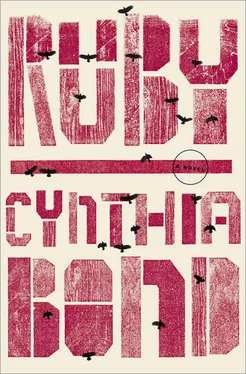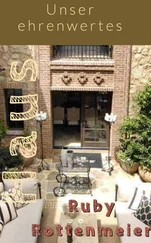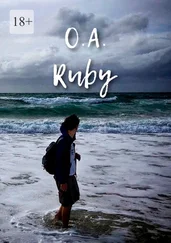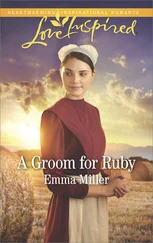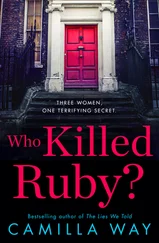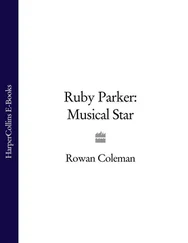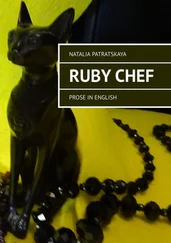He walked softly. He could feel the brittle crisp of the grass beneath his shoes. The place was a weed. The house, the well, the porch, the top of the chinaberry tree in the distance, everything on the place jutting and dry. His heart rang like a cowbell in his chest. Ephram stepped under the splintered porch awning and knocked. Silence. He knocked again. Silence. Again. Again. Again.
Tentatively, he circled the house. Nothing. No one. He peered into the blackness. He called out her name, a small plea under the weight of the sky.
Then he heard her scream.
Ephram ran towards the haunted sound, balancing the angel cake. Guided by moonlight, he made it over the rise. There he saw her clawing into the dry earth with her bare hands. He saw her jerk and rip at a solid root. He walked silently closer and saw that her thumb was cut and bleeding, her fingers raw.
She dug with a fury, a whipping wild might, and she wailed until the roots and the branches shook. In that second she looked directly at Ephram. She poured her anguish into the black of his eyes. “Jesus! My babies! Jesus Lord! Jesus Lord!”
He took it in and held it close.
Saliva spewed from the knot of her mouth and she spread her legs and pushed absolutely nothing into the shallow grave of earth. But Ruby knew that she had just released the hidden soul of one of the murdered children. Ephram saw and felt a gush of warmth against the cuffs of his slacks, his ankles. Somehow a tiny slant of light grew brighter upon that soil.
Ephram watched Ruby bury and consecrate with her tears.
“There, there,” she whispered like wind, “you safe now. The womb or the earth. The womb or the earth. Only two places children be safe.” Ruby patted the mound of soil, her body gulping air and releasing it tattered. Ephram looked and saw dozens of small graves. The branches of the chinaberry cast shadows that stretched like arms over the hill.
“There, there …” she whispered again. Her red eyes finding him. Ephram knew that he had seen the breaking of the storm. He looked at the hem of her gray dress. How a corner had been ripped away and a clean fold of blue lay across her thighs.
He wanted to tell her it was the color of a robin’s egg. He wanted to take her in his arms. He wanted to tell her about how Celia’s cake was best with iced milk. He wanted — Ephram caught his breath. He wanted. Had held wanting at bay for the stretch and girth of his life.
So Ephram reached out for the first time since his mama left him. He reached out to smooth down Ruby’s dress.
She laid on down, hiked up her skirt and waited. The quicker he began, the quicker he would end. And he had brought what looked like cake, which was more than most, more than all. So when he pulled her up and lifted her injured hand she bared her teeth and glared, because if he didn’t want to take her body, then he must want something more vile.
When he took out the bottle of iodine, she snarled and then she kicked him. Hard. Kicked the waiting moon cake. Kicked his lips and nose so that blood trickled down his chin. Then she crouched and waited.
The cake in ruins about his feet, Ephram felt a lump rise in his throat and then he began to sob. Soft little whimpers like a child. She looked at him. Then she caught the jagged tear of her breath. Her lungs calmed and she leaned over and let her hand pat his back. Gentle like burping a baby. She said, “There, there.” They stayed like that for a little while in the dark, until she reached over and grabbed a handful of cake from the ground.
She chewed and she gave him a soft nod.
So he gave her one right back.
Ruby ventured, “You know, you’ve got to stop letting yourself be beat on by women.”
“I know,” Ephram replied.
The night shifted her horizon and contemplated the kindling of dawn. Ruby and Ephram sat in silence and ate the most amazing white lay angel cake, made theirs with bits of dirt and grass, while the piney woods watched from the shadows.
Celia Jennings had not slept in her bed. She had fallen asleep at the kitchen table waiting for Ephram, and awakened at four o’clock in the morning alone, still sitting upright. She had not leaned, or even slumped, onto the polished wooden table. Had not let saliva trickle onto the grain. She was stiff even in sleep, clean in slumber.
Celia had been fourteen when her mother had shamed her entire family by walking up to the Easter Day picnic naked. Ephram was only eight, but the stain still spread over each and every one of them. It was the burden God had decided to fit upon their shoulders. That and their mother having a new home from that day forward — Dearing State Mental. The fact that their daddy, the Reverend Jennings, was politely asked to leave his own church was yet another weight to bear. He took to preaching on the road ten months out of twelve, in even smaller, dingier churches along the Sabine.
The first day the Reverend folded up his tobacco pouch, grabbed his bag and left, Celia started cleaning. She cleaned the smokehouse and the attic and all the jars in the root cellar, the lard-oil lamps and the grandfather clock. She cleaned the parlor and the water closet, scoured the cookstove and scooped its ashes, bleached the walls, the cabinets, and between the tines of every fork. She made Ephram help her drag out all three mattresses, one feather, two barley straw, and then she beat them into submission. She then scrubbed every floor with lye soap and water until her fingers withered and burned. She pumped water into three large tins and a kettle. Lit a pit fire. Took a washboard to seven sets of sheets, ten towels and a house full of clothes. Rinsed them in the second tin, boiled them in the kettle, with the last tin for bluing whites, then hung them all out to dry. When she finished, two weeks had passed.
After that, Celia was surprised that she had ever had time for classes; for spelling competitions; for A’s in Arithmetic and History; for boys like Chauncy Rankin and K.O. Charles, when there was so much to be done at home. Besides Chauncy and them had never made much time for her until her sophomore year, when her chest and hips had swollen up so that students actually pointed the first day of the school year. That was also the day Chauncy and K.O. began their friendly rivalry over the handsome, brown-skinned preacher’s daughter at number 8 Abraham Road.
Chauncy and K.O. fought over everything. Dominoes, dice, marbles, baseball, grades, rows plowed, races run, lakes swum and, most of all, girls won. Chauncy Rankin, at sixteen, stood six feet four inches, skin smooth and toasted almond, black hair that had the nerve to curl up and wave. His smile finished off most, perfect white with a twisted dimple under his left cheek. K.O. was the scholar, shale brown and only one inch shy of Chauncy’s height, but built for speed and strength. Angled jaw, cheekbones high, K.O. looked as if he’d been chiseled with a sharp blade.
The fall of ’36, Chauncy and K.O. descended upon Abraham Road. Since Celia’s father did not allow her to date, they came to her house, bringing Hershey bars and RC Colas. Sitting in the parlor for hours at a time until the Reverend made whichever one was there leave. Chauncy would tease her, blow bubbles in the soda and say, “I’m a huckleberry above K.O.’s persimmon any day.”
K.O. read her bits of Nature by Emerson, and when they were alone, leaned into her ear and asked her, if he could, in two years, ask her to marry him. When Chauncy got word he plain out asked her. Celia said yes, as long as long engagements were all right with him. Chauncy said they were his favorite kind. K.O. took the news as best he could.
They’d planned to ask her parents’ permission that Easter Sunday. At the picnic, Chauncy held her hand tight, until folks started laughing and talking and pointing. Chauncy let go of her hand and pointed too. Celia followed his arm, his index finger, and saw her mother at the end of it, walking over that hill naked save her Easter hat, her light blue shoes and her lacing tat. Chauncy would never take hold of Celia’s hand again.
Читать дальше
